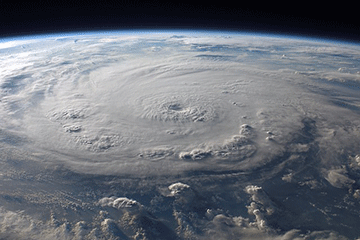
03/29/2019
Extreme weather events such as floods, hurricanes and fire-inducing droughts, are increasingly being linked to climate change.
Does recent flash flooding in upstate New York relate to global rising temperatures? Is drought followed by mudslide-causing rainfall in California have anything to do with what’s happening more locally to Cortland?
A panel that includes the College’s chief official in charge of campus energy efficiency and a professor tasked with helping future educators teach and children understand science will talk about what the observed weather phenomena might mean during a community roundtable on Thursday, April 4, at SUNY Cortland.
“Global and Regional Impacts of Climate Change,” the presentation of the Victor G. and Ann Siegle College Community Roundtable Series, will be held from 8 to 9 a.m. in the Park Center Hall of Fame Room.
The event is free and open to the public. Refreshments will precede the presentation at 7:45 a.m.
Panelists include Matthew Brubaker, campus energy manager, Facilities Operations and Services; and Beth Klein, professor, childhood/early childhood education and campus sustainability coordinator.
They will discuss global and regional impacts of climate change with a focus on extreme weather events. Brubaker and Klein also will explore strategies that can help the Cortland community be more responsive to these impacts.
Hosted by the President’s Office since 2014, the ongoing community roundtable series has been presented with the support of an endowment created by Cortland College Foundation board member emeritus Victor Siegle and his wife, Ann. For his service, the College Council of SUNY Cortland honored Siegle in 2013 with its College Community Appreciation Award.
For more information about the roundtables, contact Samantha Howell, special events coordinator for the President’s Office, at 607-753-5453, or visit the Community Roundtables webpage.
Above image of cold- and warm-air weather fronts of 2007 Hurricane Felix by WikiImages from Pixabay